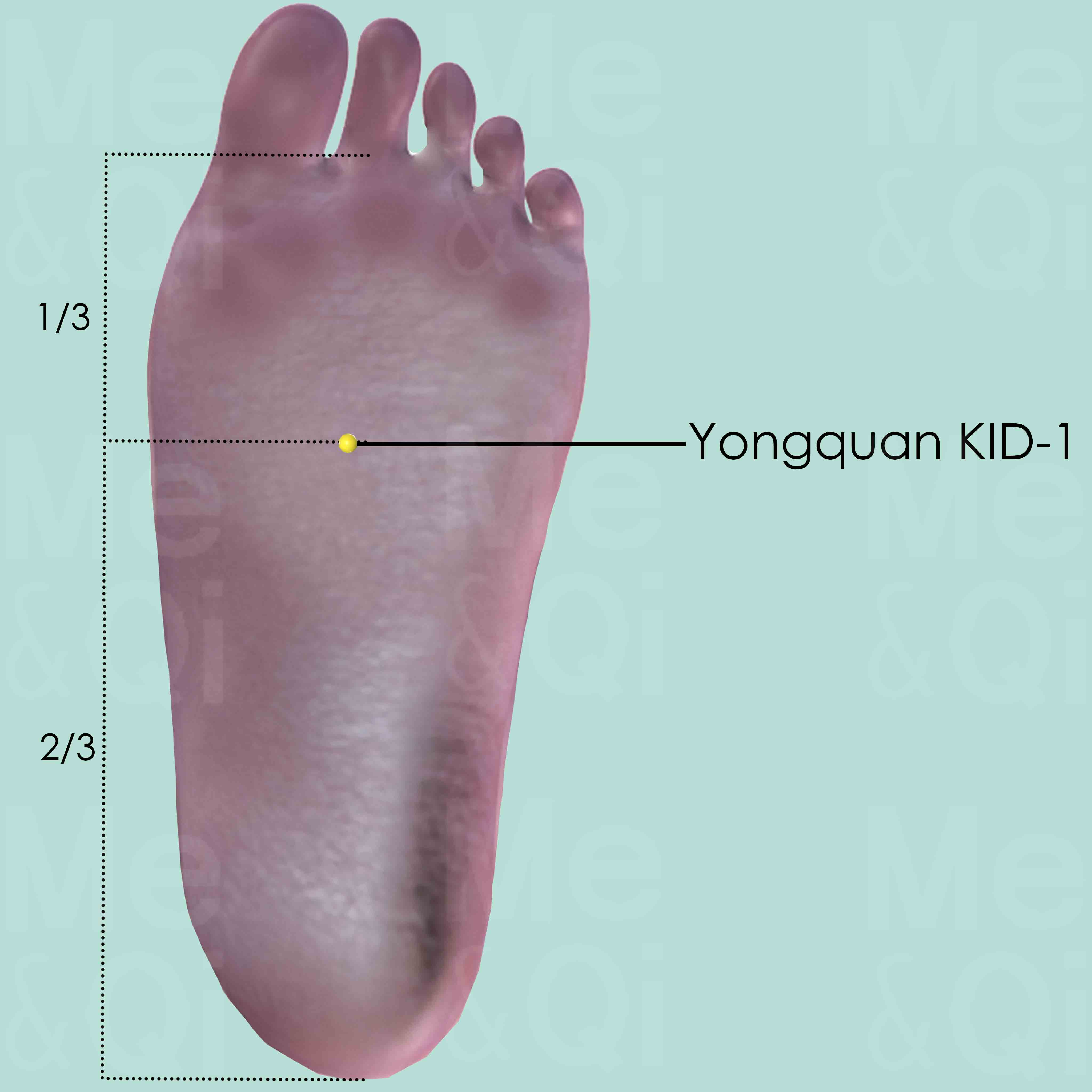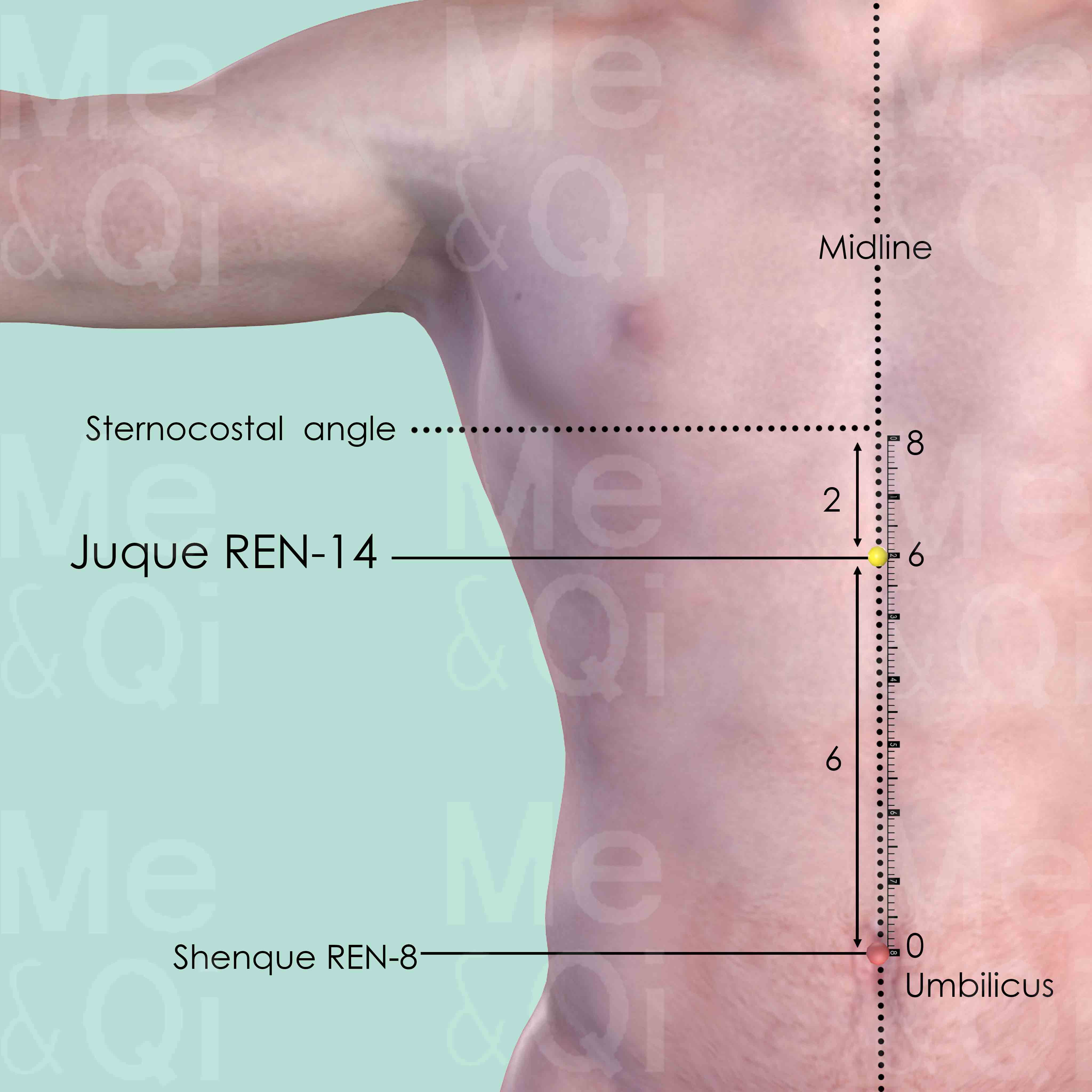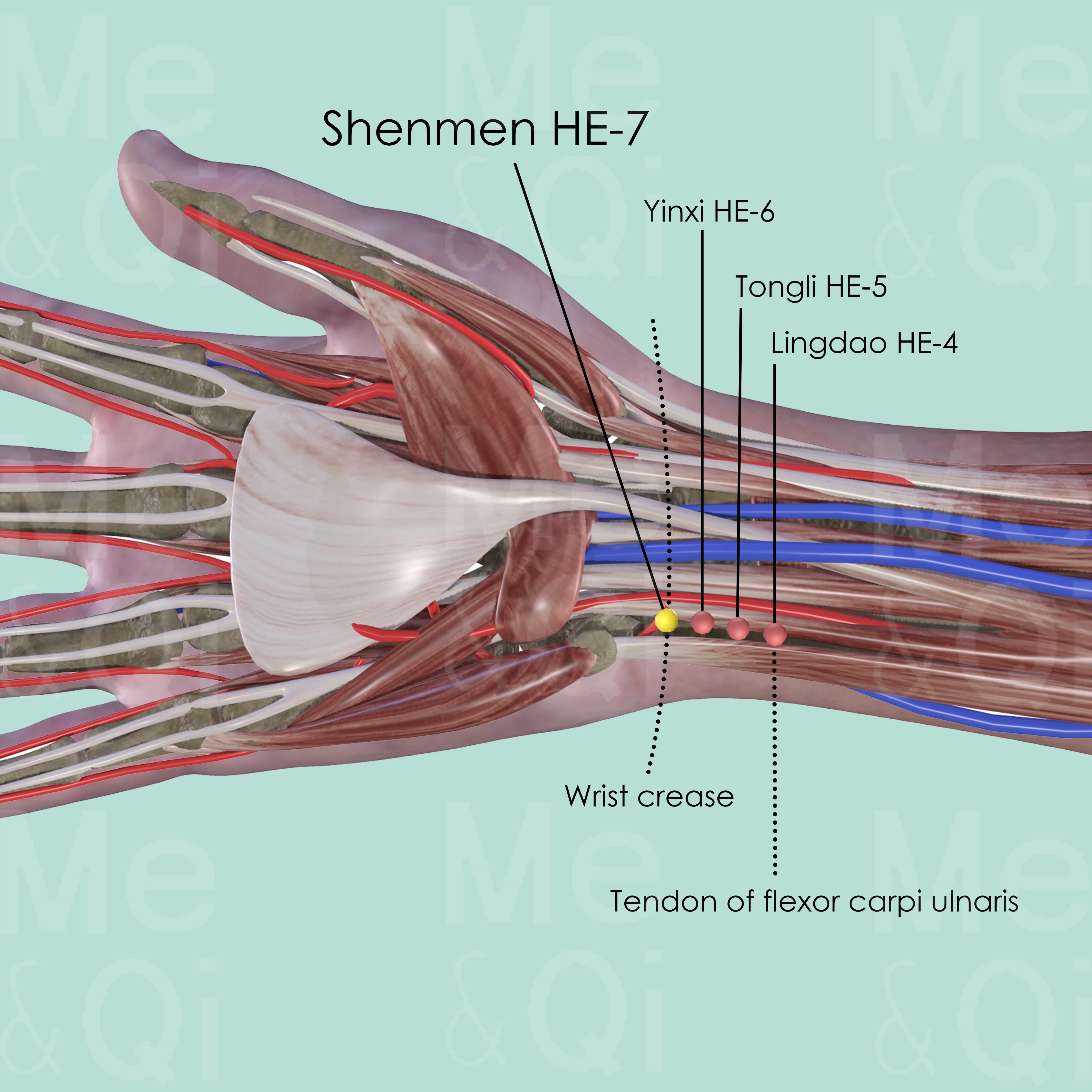Aggressionaccording to TCM
Root Causes of Aggression in TCM
Explore below more details about what might cause Aggression according to TCM.
Phlegm
In TCM "Phlegm" as a pattern of disharmony is a complex concept that extends beyond the physical manifestation of mucus. It represents a pathological factor that can disrupt the flow of Qi (vital energy) and blood, leading to various health issues. Phlegm in TCM is seen as a sticky, turbid substance arising from the body's inability to metabolize fluids properly, often due to a dysfunction of the spleen. It's not only associated with respiratory problems like cough and congestion but also with systemic issues. Symptoms can include a feeling of heaviness, mental cloudiness, dizziness, and in some cases, the formation of lumps or masses. Phlegm can even be "invisible," contributing to emotional disturbances like depression or stress. ... see more
Phlegm Patterns That Can Lead to Aggression
Common Symptoms: Palpitations Flushed Face Bitter Taste In The Mouth Noisy Breathing Restlessness Insomnia Vivid Dreaming Anxiety
| Pattern Name | Relevant Symptoms | Relevant Formulas |
|---|---|---|
| Phlegm Fire harassing the Pericardium | Violent behaviour, Shouting, Palpitations, Flushed face, Bitter taste in the mouth, Noisy breathing, Restlessness, Insomnia, Vivid dreaming, Anxiety, Incoherent or confused speech, Confusion, Rash behaviour, Uncontrolled laughing or crying, Verbal aggression, Talking to oneself, Depression, Dull shallow face, Aggression, Feeling of oppression of the chest, Chest pain, Rapid respiration... see more | Wen Dan Tang | Huang Lian Wen Dan Tang | Zhi Bao Dan | Hui Chun Dan |
| Phlegm-Fire harassing the Heart | Violent behaviour, Shouting, Palpitations, Flushed face, Bitter taste in the mouth, Noisy breathing, Restlessness, Insomnia, Vivid dreaming, Anxiety, Incoherent or confused speech, Confusion, Rash behaviour, Uncontrolled laughing or crying, Verbal aggression, Talking to oneself, Depression, Dull shallow face, Aggression... see more | Wen Dan Tang | Huang Lian Wen Dan Tang | Sheng Tie Luo Yin |
Mind Disturbance
In TCM "Shen" refers to the mind or spirit, and a Shen disturbance is a pattern of disharmony that affects the mental and emotional state. This concept reflects the TCM belief in the deep interconnectedness of mind and body. Symptoms of Shen disturbance can vary widely but often include anxiety, insomnia, restlessness, confusion, or in severe cases, hallucinations or delirium. These symptoms indicate an imbalance in the body's energies affecting the heart, which in TCM is not only the center of blood circulation but also the seat of the mind and consciousness. The root of Shen disturbance can be traced to various factors, including emotional stress, physical illness, or an imbalance in fundamental substances like Qi, Yin, or Yang.... see more
Mind Disturbance Patterns That Can Lead to Aggression
Common Symptoms: Palpitations Flushed Face Bitter Taste In The Mouth Noisy Breathing Restlessness Insomnia Vivid Dreaming Anxiety
| Pattern Name | Relevant Symptoms | Relevant Formulas |
|---|---|---|
| Phlegm Fire harassing the Pericardium | Violent behaviour, Shouting, Palpitations, Flushed face, Bitter taste in the mouth, Noisy breathing, Restlessness, Insomnia, Vivid dreaming, Anxiety, Incoherent or confused speech, Confusion, Rash behaviour, Uncontrolled laughing or crying, Verbal aggression, Talking to oneself, Depression, Dull shallow face, Aggression, Feeling of oppression of the chest, Chest pain, Rapid respiration... see more | Wen Dan Tang | Huang Lian Wen Dan Tang | Zhi Bao Dan | Hui Chun Dan |
| Phlegm-Fire harassing the Heart | Violent behaviour, Shouting, Palpitations, Flushed face, Bitter taste in the mouth, Noisy breathing, Restlessness, Insomnia, Vivid dreaming, Anxiety, Incoherent or confused speech, Confusion, Rash behaviour, Uncontrolled laughing or crying, Verbal aggression, Talking to oneself, Depression, Dull shallow face, Aggression... see more | Wen Dan Tang | Huang Lian Wen Dan Tang | Sheng Tie Luo Yin |
Heat
In TCM "Heat" signifies an excess of Yang energy, leading to an imbalance where heat predominates over the body's cool Yin aspects. This condition is metaphorically akin to an internal over-heating. Symptoms indicative of Heat can include feelings of warmth, fever, sweating, irritability, red face, thirst with a preference for cold drinks, and a rapid pulse. The tongue may appear red with a yellow coating. Unlike the common interpretation of heat in terms of temperature, in TCM, it represents a state of hyperactivity or inflammation in the body.... see more
Heat Patterns That Can Lead to Aggression
Common Symptoms: Palpitations Flushed Face Bitter Taste In The Mouth Noisy Breathing Restlessness Insomnia Vivid Dreaming Anxiety
| Pattern Name | Relevant Symptoms | Relevant Formulas |
|---|---|---|
| Phlegm Fire harassing the Pericardium | Violent behaviour, Shouting, Palpitations, Flushed face, Bitter taste in the mouth, Noisy breathing, Restlessness, Insomnia, Vivid dreaming, Anxiety, Incoherent or confused speech, Confusion, Rash behaviour, Uncontrolled laughing or crying, Verbal aggression, Talking to oneself, Depression, Dull shallow face, Aggression, Feeling of oppression of the chest, Chest pain, Rapid respiration... see more | Wen Dan Tang | Huang Lian Wen Dan Tang | Zhi Bao Dan | Hui Chun Dan |
| Phlegm-Fire harassing the Heart | Violent behaviour, Shouting, Palpitations, Flushed face, Bitter taste in the mouth, Noisy breathing, Restlessness, Insomnia, Vivid dreaming, Anxiety, Incoherent or confused speech, Confusion, Rash behaviour, Uncontrolled laughing or crying, Verbal aggression, Talking to oneself, Depression, Dull shallow face, Aggression... see more | Wen Dan Tang | Huang Lian Wen Dan Tang | Sheng Tie Luo Yin |
Blood Stasis
Blood Stasis in TCM is a concept where the blood flow in the body is not as smooth or efficient as it should be. Imagine a river that's supposed to flow freely, but instead, it's getting blocked or moving too slowly in some parts. This can lead to various health issues, like pain that feels sharp or stabbing, dark bruises, and a complexion that looks purplish. TCM believes that good health relies on the smooth and vibrant flow of Qi and blood throughout the body, so when blood gets stuck, it's like a traffic jam in your body, leading to discomfort or health problems.... see more
Blood Stasis Patterns That Can Lead to Aggression
| Pattern Name | Relevant Symptoms | Relevant Formulas |
|---|---|---|
| Heart Blood Stagnation | Aggressiveness, Stabbing chest pain, Chest constriction, Feeling of oppression of the chest | Xiao Tiao Jing Tang |
Heart
In TCM the Heart is considered the "emperor" of all organs, primarily responsible for governing Blood and housing the mind, known as "Shen." It plays a crucial role in maintaining mental-emotional equilibrium and controlling the circulation of Qi and blood throughout the body. When the Heart is imbalanced or malfunctions in TCM, it can lead to a range of issues like heart palpitations, insomnia, dream-disturbed sleep, anxiety, and a flushed complexion. Emotional disturbances such as excessive joy or lack of joy are also seen as signs of Heart disharmony. These symptoms reflect not just physical heart conditions but also the state of one's Shen, indicating the interconnectedness of physical and emotional well-being in TCM.... see more
Heart Patterns That Can Lead to Aggression
Common Symptoms: Feeling Of Oppression Of The Chest Palpitations Stabbing Chest Pain Chest Constriction Purple Lips Purple Nails Cold Hands Purple Face
| Pattern Name | Relevant Symptoms | Relevant Formulas |
|---|---|---|
| Heart Blood Stagnation | Aggressiveness, Stabbing chest pain, Chest constriction, Feeling of oppression of the chest | Xiao Tiao Jing Tang |
| Phlegm-Fire harassing the Heart | Violent behaviour, Shouting, Palpitations, Flushed face, Bitter taste in the mouth, Noisy breathing, Restlessness, Insomnia, Vivid dreaming, Anxiety, Incoherent or confused speech, Confusion, Rash behaviour, Uncontrolled laughing or crying, Verbal aggression, Talking to oneself, Depression, Dull shallow face, Aggression... see more | Wen Dan Tang | Huang Lian Wen Dan Tang | Sheng Tie Luo Yin |
Pericardium
In TCM the Pericardium is more than a physical membrane protecting the heart; it's considered an organ system that acts as the "Heart's protector." It plays a crucial role in safeguarding the heart from external pathogenic factors and emotional disturbances. The Pericardium is also involved in regulating blood circulation and influencing emotional well-being, especially in terms of relationships and intimacy. When the Pericardium malfunctions or is imbalanced in TCM, it can lead to symptoms that mirror heart issues, such as chest pain or palpitations, but often with an emotional component like difficulty in forming emotional connections or excessive vulnerability to external stressors. Additionally, a disturbed Pericardium can result in sleep disturbances, anxiety, and in severe cases, mental confusion, reflecting its integral role in both physical heart protection and emotional balance.... see more
Pericardium Patterns That Can Lead to Aggression
| Pattern Name | Relevant Symptoms | Relevant Formulas |
|---|---|---|
| Phlegm Fire harassing the Pericardium | Violent behaviour, Shouting, Palpitations, Flushed face, Bitter taste in the mouth, Noisy breathing, Restlessness, Insomnia, Vivid dreaming, Anxiety, Incoherent or confused speech, Confusion, Rash behaviour, Uncontrolled laughing or crying, Verbal aggression, Talking to oneself, Depression, Dull shallow face, Aggression, Feeling of oppression of the chest, Chest pain, Rapid respiration... see more | Wen Dan Tang | Huang Lian Wen Dan Tang | Zhi Bao Dan | Hui Chun Dan |
TCM Herbal Formulas for Aggression
Explore below some TCM herbal formulas used to address aggression, organized by cause and by formula type.
- By Cause
- By Formula Type
- Phlegm
- Mind Disturbance
- Heat
- Blood Stasis
- View More Causes
- Formulas that dry dampness and transform phlegm
- Formulas that clear heat and open sensory orifices
- Formulas that regulate blood
- Formulas that sedate and calm the mind
Top Formula for Phlegm:
Wen Dan Tang
Suitable for Phlegm patterns that may cause aggression, such as Phlegm Fire harassing the Pericardium or Phlegm-Fire harassing the Heart
Learn moreAll Formulas Recommended for Aggression Caused by Phlegm
| Formula | Patterns Suitable For |
|---|---|
| Wen Dan Tang | Phlegm Fire harassing the Pericardium, Phlegm-Fire harassing the Heart |
| Huang Lian Wen Dan Tang | Phlegm Fire harassing the Pericardium, Phlegm-Fire harassing the Heart |
| Zhi Bao Dan | Phlegm Fire harassing the Pericardium |
| Hui Chun Dan | Phlegm Fire harassing the Pericardium |
| Sheng Tie Luo Yin | Phlegm-Fire harassing the Heart |
Top Formula for Mind Disturbance:
Wen Dan Tang
Suitable for Mind Disturbance patterns that may cause aggression, such as Phlegm Fire harassing the Pericardium or Phlegm-Fire harassing the Heart
Learn moreAll Formulas Recommended for Aggression Caused by Mind Disturbance
| Formula | Patterns Suitable For |
|---|---|
| Wen Dan Tang | Phlegm Fire harassing the Pericardium, Phlegm-Fire harassing the Heart |
| Huang Lian Wen Dan Tang | Phlegm Fire harassing the Pericardium, Phlegm-Fire harassing the Heart |
| Zhi Bao Dan | Phlegm Fire harassing the Pericardium |
| Hui Chun Dan | Phlegm Fire harassing the Pericardium |
| Sheng Tie Luo Yin | Phlegm-Fire harassing the Heart |
Top Formula for Heat:
Wen Dan Tang
Suitable for Heat patterns that may cause aggression, such as Phlegm Fire harassing the Pericardium or Phlegm-Fire harassing the Heart
Learn moreAll Formulas Recommended for Aggression Caused by Heat
| Formula | Patterns Suitable For |
|---|---|
| Wen Dan Tang | Phlegm Fire harassing the Pericardium, Phlegm-Fire harassing the Heart |
| Huang Lian Wen Dan Tang | Phlegm Fire harassing the Pericardium, Phlegm-Fire harassing the Heart |
| Zhi Bao Dan | Phlegm Fire harassing the Pericardium |
| Hui Chun Dan | Phlegm Fire harassing the Pericardium |
| Sheng Tie Luo Yin | Phlegm-Fire harassing the Heart |
Top Formula for Blood Stasis:
Xiao Tiao Jing Tang
Suitable for Blood Stasis patterns that may cause aggression, such as Heart Blood Stagnation
Learn moreFormulas that dry Dampness and transform Phlegm
These formulas are suitable for some aggression-causing patterns like Phlegm Fire harassing the Pericardium or Phlegm-Fire harassing the Heart.
One such formula is Wen Dan Tang, with crow-dipper rhizome as a key herb.
Other formulas of this category are listed in the table below.
All "formulas that dry dampness and transform phlegm" recommended for aggression
| Formula | Patterns Suitable For (if applicable) |
|---|---|
| Wen Dan Tang | Phlegm Fire harassing the Pericardium, Phlegm-Fire harassing the Heart |
| Huang Lian Wen Dan Tang | Phlegm Fire harassing the Pericardium, Phlegm-Fire harassing the Heart |
Formulas that clear Heat and open sensory orifices
These formulas are suitable for some aggression-causing patterns like Phlegm Fire harassing the Pericardium.
One such formula is Zhi Bao Dan, with water buffalo horn as a key herb.
Other formulas of this category are listed in the table below.
All "formulas that clear heat and open sensory orifices" recommended for aggression
| Formula | Patterns Suitable For (if applicable) |
|---|---|
| Zhi Bao Dan | Phlegm Fire harassing the Pericardium |
| Hui Chun Dan | Phlegm Fire harassing the Pericardium |
Formulas that regulate Blood
These formulas are suitable for some aggression-causing patterns like Heart Blood Stagnation.
One such formula is Xiao Tiao Jing Tang, with white peony root as a key herb.
Formulas that sedate and calm the Mind
These formulas are suitable for some aggression-causing patterns like Phlegm-Fire harassing the Heart.
One such formula is Sheng Tie Luo Yin, with oxidized iron filing as a key herb.
Acupoints for Aggression
Explore below some acupoints used to address aggression, organized by meridian.
- By Meridian
- Kidney Channel
- Directing Vessel
- Heart Channel

Yongquan KID-1
In the depression between the 2nd and 3rd metatarsal bones on the sole when the foot is in plantar flexion, approximately at the junction of the anterior and middle third of the sole.

Juque REN-14
On the midline of the abdomen, 6 cun above the umbilicus and 2 cun below the sternocostal angle.

Shenmen HE-7
On the transverse crease of the wrist, in the articular region between the pisiform bone and the ulna, in the depression on the radial side of the tendon of flexor carpi ulnaris muscle.
